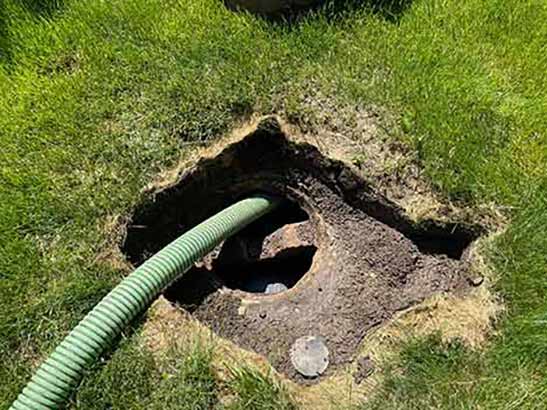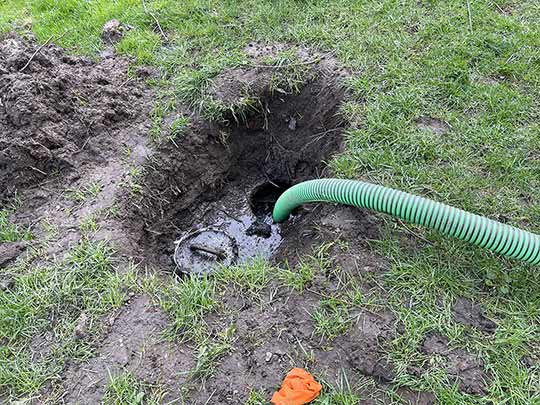
A septic tank is an important component of a home’s wastewater management system. Regular maintenance, including septic tank pumping, is crucial to ensure its proper functioning. However, determining the right schedule for septic tank pumping can be challenging for many homeowners. In this article, we will provide you with valuable insights and guidelines to help you set the correct schedule for septic tank pumping.
The Importance of Septic Tank Pumping
Understanding the importance of septic tank pumping is the first step towards setting the right schedule. A septic tank collects and processes all the waste that flows from your home. Over time, solid waste accumulates at the bottom of the tank, forming sludge. If not pumped out regularly, the sludge can build up and clog the drainage system, leading to potential septic system failure, foul odors, and costly repairs.
Factors to Consider
Several factors play a role in determining how often you should schedule septic tank pumping:
- The size of your household: Larger households produce more wastewater and, consequently, more solid waste. Therefore, they typically require more frequent pumping.
- Tank size: The size of your septic tank also influences the pumping frequency. A larger tank can hold more waste, thus requiring less frequent pumping compared to a smaller tank.
- Usage habits: Certain activities, such as excessive water usage or the disposal of non-biodegradable items down the drain, can accelerate the accumulation of waste in the tank. You should adjust your pumping schedule accordingly.
- Soil condition: The composition and permeability of the soil in your drain field affect the septic system’s overall efficiency. If you have clay or compacted soil, you may need to pump more frequently due to reduced drainage capabilities.
- Previous maintenance: If you have recently pumped your septic tank, you can use the past pumping frequency as a reference point. However, it is still essential to consider other factors that may have changed since then.
Recommendations for Pumping Frequency
While each septic system is unique, the following are general recommendations for septic tank pumping:
- Household of 1-2 people with a tank size of 750-1,000 gallons: Pump every 3-5 years.
- Household of 3-4 people with a tank size of 1,000-1,500 gallons: Pump every 2-3 years.
- Household of 5 or more people with a tank size larger than 1,500 gallons: Pump every 1-2 years.
Remember, these are general guidelines, and it’s crucial to monitor your septic system’s health and make adjustments as necessary. Additionally, consult a professional septic tank service provider for a more accurate recommendation based on your specific situation.
Signs Your Tank Needs Pumping Sooner
While following a regular pumping schedule is important, there are signs that indicate your septic tank may require immediate pumping:
- Slow drains: If your sinks, toilets, or showers are draining slowly, it could indicate a full septic tank.
- Odors: Foul odors around your drains, yard, or septic tank may indicate a buildup of wastewater or a malfunctioning system.
- Pooling water: The presence of standing water or sewage in your yard, particularly around the septic tank or drain field, could be a sign of an overflowing tank.
- Gurgling sounds: Unusual gurgling sounds coming from your drains could suggest a blockage or backup in the septic tank.
If you experience any of these signs, do not hesitate to contact a professional septic tank service provider to assess the situation and perform the necessary pumping.

Maintaining a Healthy Septic System
In addition to regular pumping, you can take several steps to ensure the health and longevity of your septic system:
- Conserve water: Reduce water usage by fixing leaks, installing efficient fixtures, and practicing water-saving habits.
- Proper waste disposal: Only flush down the toilet and drain items that are septic-safe and biodegradable. Avoid using chemical drain cleaners that can harm the bacterial balance in your tank.
- Regular inspections: Schedule routine septic inspections to identify potential issues before they turn into major problems.
- Schedule maintenance: Follow a preventative maintenance plan offered by septic system professionals to keep your system in optimal condition.
Conclusion
Setting the right schedule for septic tank pumping is crucial to maintain a functional and odor-free septic system. Consider factors like household size, tank size, usage habits, soil condition, and past maintenance. Follow the recommended pumping frequencies as a starting point but remain vigilant for signs that indicate the need for more immediate pumping. By taking proper care of your septic system, you can avoid costly repairs and ensure its longevity.


Recent Comments